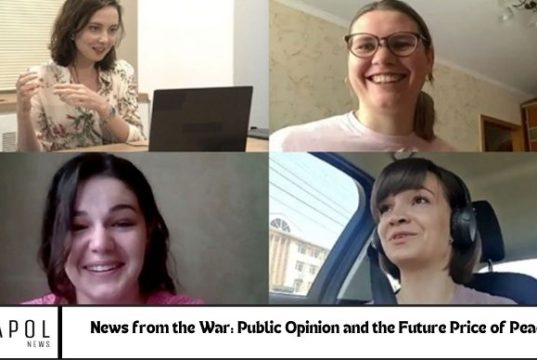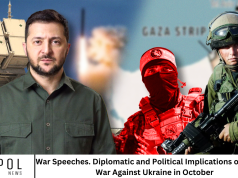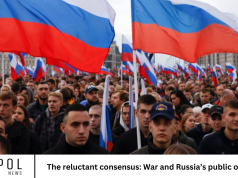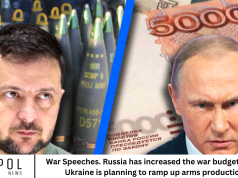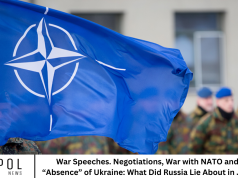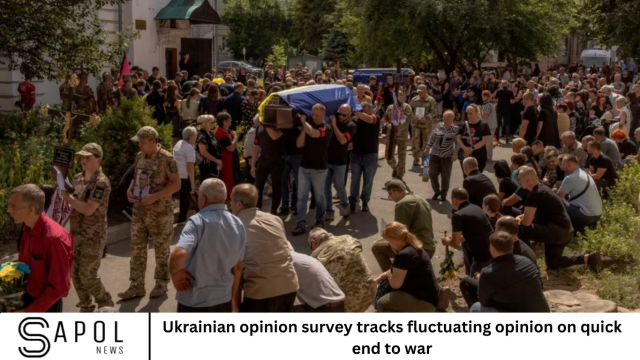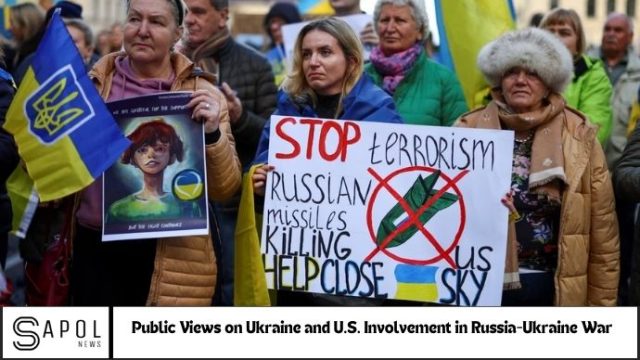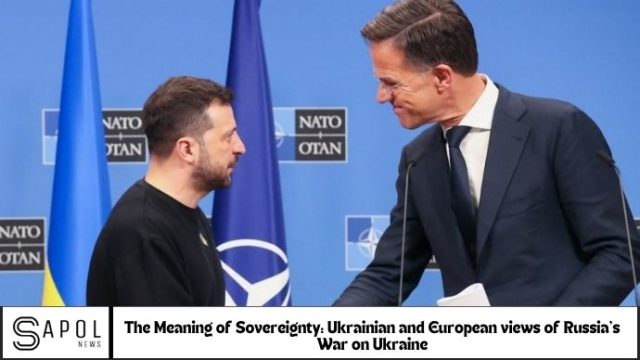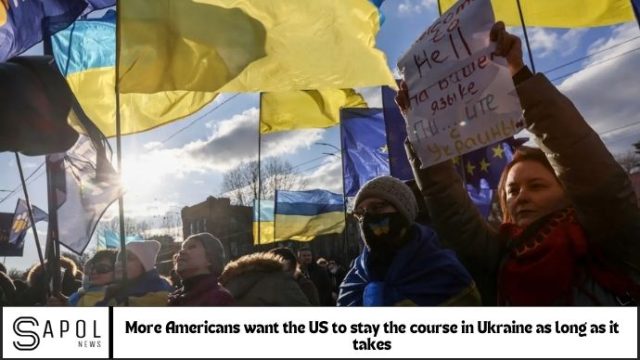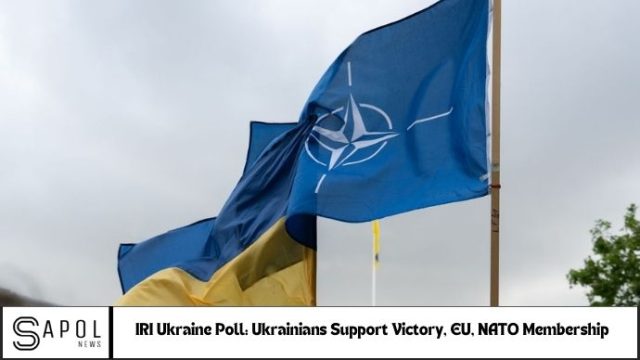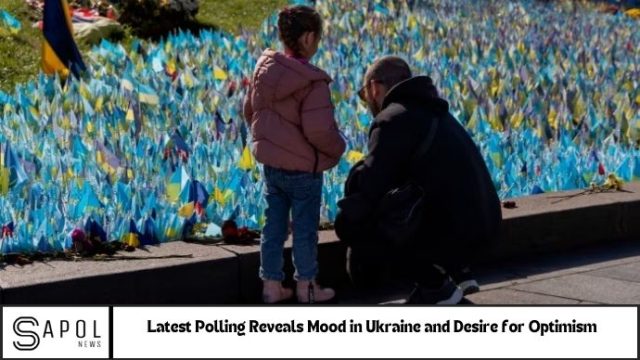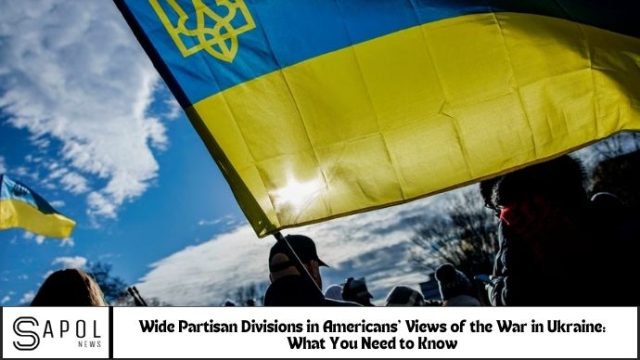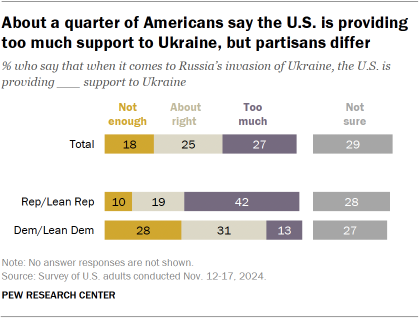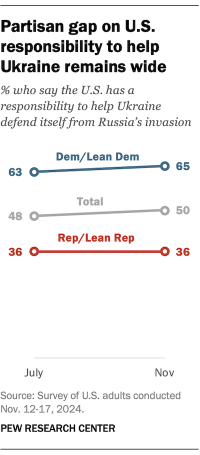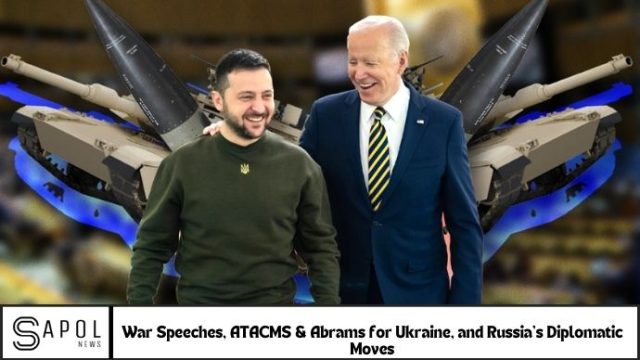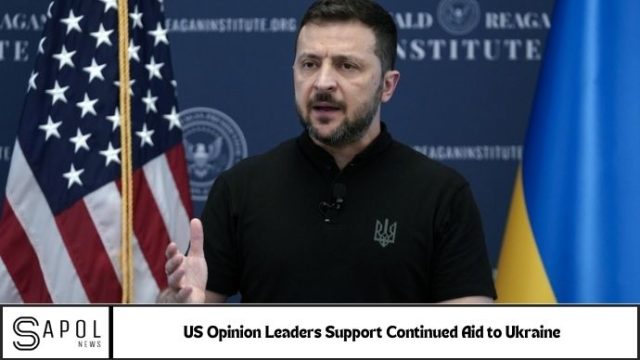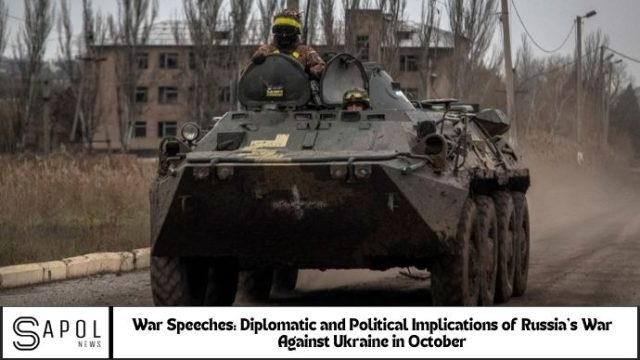Ukrainian opinion survey tracks fluctuating opinion on quick end to war
A new survey of public opinion in Ukraine indicates that for the first time, a slight majority of Ukrainians say they are ready to concede their lands for peace; however, other recent polls indicate opinions may be more complicated.
The Gallup polls released Tuesday, conducted in August and October, found that 52 percent of Ukrainians want their country to negotiate a quick end to the war, while 38 percent want to keep fighting until victory.
Although media reports about the survey said it reflects a shift in popular opinion from the outset of the war, when most Ukrainians wanted to fight until victory, other surveys have reported less support for a quick resolution.
In September and October of this year, the International Republican Institute’s (IRI) Center for Insights in Survey Research (CISR) found that “strong majorities believe that Ukraine will defeat Russia in the current war and support recapturing all lost territory.”
According to this survey, released November 12 and conducted by computer-assisted telephone interviews in the Kyiv-controlled territories in late September and early October, 88% of Ukrainians believe that Ukraine will win the war. This number is lower than 98% in June 2022 but has not changed since February 2024.
Similar results came from surveys conducted by Ukrainian pollsters. A study from the Kyiv International Institute of Sociology (KIIS) conducted in September-October 2024 found that 81% of Ukrainians believe Ukraine can succeed if the West provides adequate support. Only 14% believe Russia is too strong (up from 7% in December 2023).
Similarly, a national survey conducted by the Ilko Kucheriv Foundation “Democratic Initiatives” with the sociological service of the Razumkov Center in August reported that Ukrainians are not ready to capitulate to Russia’s territorial demands.
Only 9% of Ukrainians said they would agree to recognize the occupied territories as part of the Russian Federation in exchange for peace (up from 5% in August 2023), and 81% consider it unacceptable (down from 90% in August 2023).
Pollsters attribute the differences in their results to different methodologies.

Benedict Vigers, the author of the Gallup report, says while they asked questions by phone, the Razumkov survey asked questions in person. There are also some differences in sample coverage. For instance, the IRI survey did not get data from in Donetsk or Kherson.
In a written response to VOA, Vigers explained that a desire to end the war as soon as possible does not equal a willingness to give away territories. He points out that only half of those who want to negotiate peace are open to unspecified territorial concessions.
“Of the 52% who think Ukraine should seek to negotiate an ending to the war as soon as possible, around half (52%) are open to making some territorial concessions to achieve peace with Russia. Another 38% are not open to these concessions,” he wrote.
That means that only a quarter of Ukraine’s polled population is open to territorial concessions in exchange for peace.
“There is still a significant chunk of society that wants to keep fighting until victory, and for most of these people, victory means taking back all land lost since 2014, including Crimea,” Vigers said.
Mykhailo Mishchenko, deputy director of the Ukrainian Razumkov Center Sociological Service, showed how a slight difference in the question’s wording can alter the results.
“When you ask the question, ‘Do you agree that Ukraine should be open to making some territorial concessions as a part of a peace deal to end the war?’ you get a different answer. It does not mean that all 52% of those who said ‘yes’ in the Gallup poll agree to the territorial concessions. They may be open to considering this question,” Mishchenko told VOA.
He said that Ukrainian society is tired of war after 2.5 years, and the number of people who support negotiations has grown. They also can observe the change of rhetoric from Ukrainian President Volodymyr Zelenskyy, who said that Russia should be invited to the next peace summit. But Mishchenko cautions against interpreting the polls’ results as a desire of Ukrainians to surrender.
In one of his previous interviews, Mishchenko pointed out that many Ukrainians do not believe that territorial concessions would end the war.
“Among those who are ready to make concessions, 26% answered that Russia’s goal is genocide and the physical destruction of the majority of Ukrainians. Another 20% of this category indicated that Russia’s goal is the destruction of the Ukrainian nation. In total, it is 46%. And only 15% of those who are ready to make concessions answered that Russia’s goal is to keep the already occupied territory without claims to the rest of the territory of Ukraine,” he said in an interview with an independent Russian newspaper.
Mishchenko points out that Russian polls indicate a greater willingness of Russian society to return lands they occupied to Ukrainians in order to end the war. One such poll was conducted in September 2024 by the Levada Center, a Russian independent pollster.
“They asked respondents if they thought ‘it was necessary to continue military operations or start peace negotiations,’ ” Michshenko said.
“The majority (54%) of the surveyed Russians were in favor of peace negotiations, and the minority (39%) were in favor of the continuation of hostilities. In September 2022, 48% of Russians supported negotiations, and 44% supported the continuation of hostilities,” he said.
Frequently Asked Question
What does the survey track?
The survey tracks the fluctuating opinions of Ukrainians regarding the desire for a quick end to the war with Russia. It looks at public sentiment over time, including changes in attitudes about how soon the conflict should end and the conditions for peace.
Why are opinions fluctuating?
Public opinion on the war’s end is influenced by factors such as military developments, casualties, economic hardships, and the international political landscape. As the war evolves, Ukrainians may feel more hopeful or more pessimistic, which causes shifts in their views on how quickly the war should end.
What are the main views regarding a quick end to the war?
The survey generally captures two main perspectives:
- Those wanting an immediate end to the conflict, often through negotiation, to avoid further destruction and loss of life.
- Those preferring to continue the fight until Ukraine regains full control of its territory, believing a military victory is the only viable path to lasting peace.
Have opinions changed significantly over time?
Yes, the survey reveals that public opinion has varied, often in response to key events such as military victories, setbacks, or diplomatic efforts. For example, major Ukrainian successes on the battlefield can increase support for continuing the war, while setbacks or growing civilian casualties can make people more open to peace talks.
What role do international actors play in shaping Ukrainian opinion?
International support or pressure from countries like the U.S., European Union, and others plays a significant role. For instance, when these countries increase their support for Ukraine, it can boost public morale and the desire to continue fighting. Conversely, calls from international actors for negotiations can influence those who prefer a quicker resolution.
Are there generational differences in opinion?
Yes, there are some generational differences. Younger Ukrainians tend to favor a quicker resolution to the conflict, possibly due to the prolonged hardships and the desire to rebuild their futures. Older Ukrainians may be more focused on restoring territorial integrity and may be less willing to consider peace without significant concessions from Russia.
What is the general public mood about the war’s end?
The public mood remains mixed, with a significant portion of the population supporting a strong military stance to reclaim all occupied territories. However, there is also fatigue, particularly as the war drags on and the toll on civilians and infrastructure rises. Many people express a desire for peace but remain skeptical about the possibility of achieving it without significant losses.
Conclusion
The Ukrainian opinion survey on the desire for a quick end to the war underscores the complex and evolving nature of public sentiment amidst an ongoing, high-stakes conflict. While many Ukrainians support continuing the fight to reclaim occupied territories and achieve a decisive military victory, there is also a notable portion of the population increasingly fatigued by the war’s toll on civilians and infrastructure. The fluctuating opinions reflect not only the changing dynamics on the battlefield but also the broader geopolitical context, including the influence of international actors and the diverse expectations across different age groups and regions within Ukraine.
Ultimately, the survey highlights the delicate balance between hope for peace and the determination to secure territorial integrity, illustrating the profound uncertainty that shapes public opinion during such a prolonged and devastating war. As the situation develops, these views will continue to evolve, reflecting both the emotional and pragmatic responses to the conflict’s ongoing challenges.

